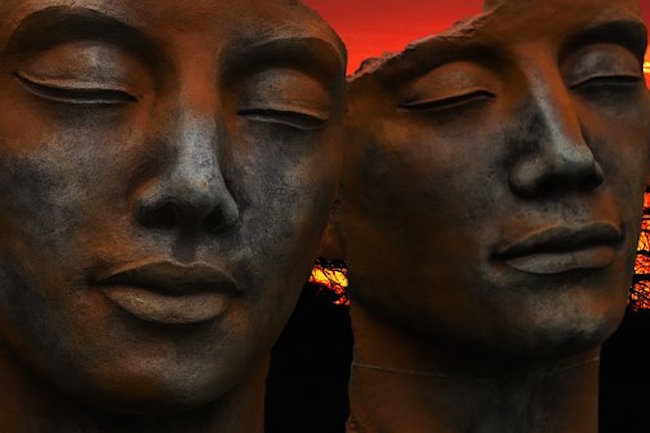The Role of Men by Frederica Mathewes-Green via Russian-Faith
“the purpose of that strength becomes obvious: protection…. Men seem to have an innate sense that it is right to die defending women, and don’t expect women to defend them…”
I was delighted to be asked to write about the “Role of Men,” because I’ve read so many articles by men about the role of women. Such essays always give me the feeling that men consider themselves the standard, and women the variation. (That assumption was evident in an American magazine some years ago, when its cover offered an article titled “Why Women are Different.”)
The feeling is reinforced when these male authors keep urgently repeating that a woman’s role is very important. The urgency makes it sound like that importance would not be obvious if they didn’t point it out. The emphasis is always on a woman’s capacity to bear children, and I agree that that is a wonder and a miracle; but most women spend most of their days doing something other than giving birth to a baby.

Yet surely there is some meaning to the difference between men and women. Surely God had a purpose in mind when he designed the human race to appear in two models, not just one. That purpose is no doubt harder to see in modern society, since so many jobs can be performed by a qualified person of either sex, regardless of age, race, or any other characteristic. But in earlier times it was clear that a man’s greater strength fitted him for work that women could not readily do. So women clustered together in the work they could do, and noticed how much they had in common; men did the same. Generalizations about the differences between men and women grew up like daisies. In an earlier era when most work meant physical labor, the content and value of those respective roles were more immediately obvious (even if some of those differences were socially invented).
What is a man’s role, in God’s economy? Perhaps we should begin, as those who write about women do, with the gender’s salient physical characteristic: greater bodily strength. Even though some women attain great strength, and some men lack it, this is nevertheless the emblem of masculinity, as childbirth is the emblem of womanhood. Even a woman who has never borne a child still bears the dignity of womanhood; even a man of small physical strength is a full member of the masculine company.
But is there any purpose for that strength, today? A woman’s role is assured, for the human race will always need child-bearers. But few of today’s professions require big muscles. A character in the novel “A Man in Full” (by Tom Wolfe) shows a modern man’s dilemma: when he is hired to work at a computer, he finds that his hands are too big and clumsy for the keyboards that women use with ease.
If we think about humanity in its primitive state, however, the purpose of that strength becomes obvious: protection. The cycle of reproduction is more demanding for humans than it is for other animals, for our babies are born much less developed than those of other mammals—comparatively, at the embryo stage. A newborn deer can struggle to its feet and go to its mother and nurse—but a newborn baby won’t walk for a year. He can’t provide for his own food and safety for many years after that.

The human newborn’s helplessness has serious implications. It isn’t enough just to give birth to a baby; if the child dies, it is the same as no reproduction at all. The human race continues only if a child survives to adulthood—old enough to reproduce in turn.




